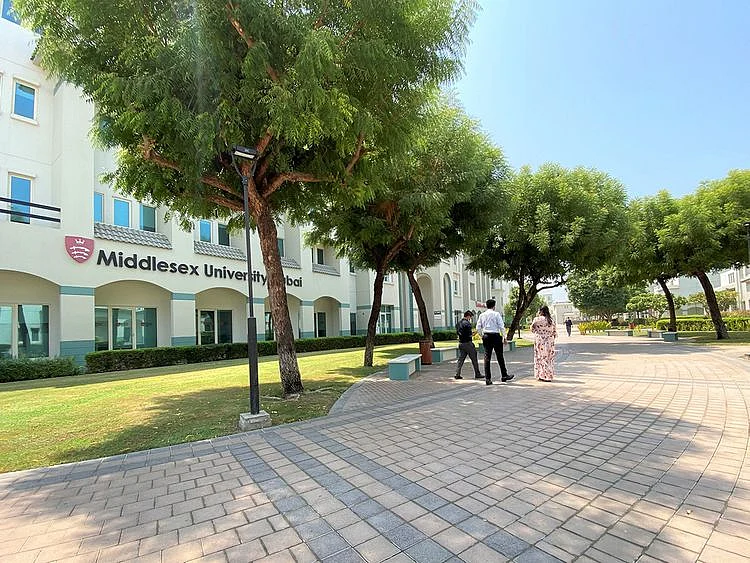Humans have less control over technological development than we believe and should see artificial intelligence as a partner for our future, not a potential threat, Professor Edward A. Lee, Robert S. Pepper Distinguished Professor Emeritus at UC Berkeley, told delegates at a global technology conference hosted virtually in Dubai last week.
The Virtual 17th International Conference on Intelligent Environments (IE2021) took place between June 21 and 24 and was hosted by Middlesex University Dubai in partnership with a consortium of global universities. Focusing on how communication and sensing technologies can enhance human interactions with the physical environments around them, the conference brought together international researchers from academia and speakers from private sector organisations such as EPSON and Amazon for four days of lectures, collaborative workshops and tutorials.
The main conference programme was led by two fascinating keynote lectures. The first was delivered by Professor Lee and explored technological and human co-evolution. Professor Lee argued that both humans and technological artefacts have unique and complementary characteristics, and humans should harness and combine these strengths and weaknesses in a co-beneficial relationship.
“Computers have surpassed human brains since the 1950s. They do many things much more reliably than us. Unless we give AIs human bodies, they won’t match our capabilities. They will develop different processes. There will be things the AIs do that humans can’t, and vice versa,” Professor Lee said. “In fact, humans are the dangerous partner in our relationship, and we should educate students in the ethics of artificial intelligence.”
The second keynote speech was delivered by Bharathan Balaji, Research Scientist at Amazon. Balaji discussed how data-driven decision making can be leveraged to measure the energy efficiency of buildings and make them more sustainable. Emphasising that 39 per cent of global carbon emissions come from buildings, Balaji argued that it would take too long to install renewable energy solutions to meet current demands and any solution needs to be scalable and easily implemented in existing structures.
Using the everyday challenge of a human-controlled thermostat in an office as a case study, Balaji suggested that wireless sensors detecting human occupancy could be one solution to redirecting energy flows, but that a smart thermostat which could be manually adjusted provides the best user experience. “Once we have the software and code, we can develop applications that enhance the user experience and allow occupants to control their environment while also reducing energy efficiency,” Balaji explained.
Through a series of accompanying workshops and tutorials, attendees debated how technology can provide real-life solutions to challenges in sectors such as physical and mental healthcare, tourism, agriculture and environmental services. Participants also explored the moral dilemmas concerning self-driving cars and the accountability of AI, which is sparking more debate as the technology develops and becomes increasingly integrated into daily life.
During the Closing Ceremony, awards were given to the most groundbreaking papers presented throughout the conference. The Best Short Paper was awarded to a research team from Eindhoven University of Technology in the Netherlands for their presentation titled, Experimenting a Healthy Ageing Community in Immersive Virtual Reality Environment: The Case of World's Longest-lived Populations, which provided insight into how VR can be used in the design of urban environments to enhance the livability of older people. The Best Full Paper, GRETA: Pervasive and AR interfaces for Controlling Intelligent Greenhouses, was won by a team from the Foundation for Research and Technology - Hellas (FORTH) in Crete, Greece.
In recognition of the contributions of women to the STEM field and to highlight the work of prominent female researchers, Masi Mohammadi, Full Professor Smart Architectural Technologies at Eindhoven University Technology, was awarded the Beatrice Worsley Award for the Best Female Researcher.
Dr Fehmida Hussain, Honorary Conference Chair and Head of Computer Engineering and Informatics at Middlesex University Dubai, said: “On behalf of my colleagues, we are proud to host this prestigious conference as one of the UAE’s leading British universities. The programme featured some of the world’s top intelligent environment researchers and explored highly relevant and impactful topics, reminding us of the role of education and research in powering science and innovation. We learned some ground-breaking insights, and I look forward to seeing this research implemented to help enhance the lives of people acround the world. This is a fantastic endorsement of Middlesex University Dubai’s position as a centre of high-quality, innovative research in intelligent environments and the wider Science and Technology field.”
Dr Cedwyn Fernandes, Pro-Vice Chancellor of Middlesex University and Director of Middlesex University Dubai, said: “Middlesex University Dubai’s Science and Technology programmes are among the best in the region and at the cutting edge of global research and education in this vital field. Our faculty are industry leaders and by bringing this pioneering conference to our university, our Science and Technology student community has been able to benefit from a unique and unmissable learning experience. I would like to congratulate our Computer Engineering and Informatics team and our partners on a successful event.”
Middlesex University Dubai is a 5-Star KHDA-rated UK university in the UAE and offers a wide range of programmes through its renowned School of Science and Technology, including a BSc Information Technology, BEng Computer Systems Engineering, MSc Robotics, MSc Data Science, MSc Network Management and Cloud Computing, and MSc Engineering Management.
The school has introduced two new courses for September 2021, a BEng Electronic Engineering and MSc Cyber Security and Pen Testing.
Sign up for the Daily Briefing
Get the latest news and updates straight to your inbox
Network Links
GN StoreDownload our app
© Al Nisr Publishing LLC 2026. All rights reserved.
